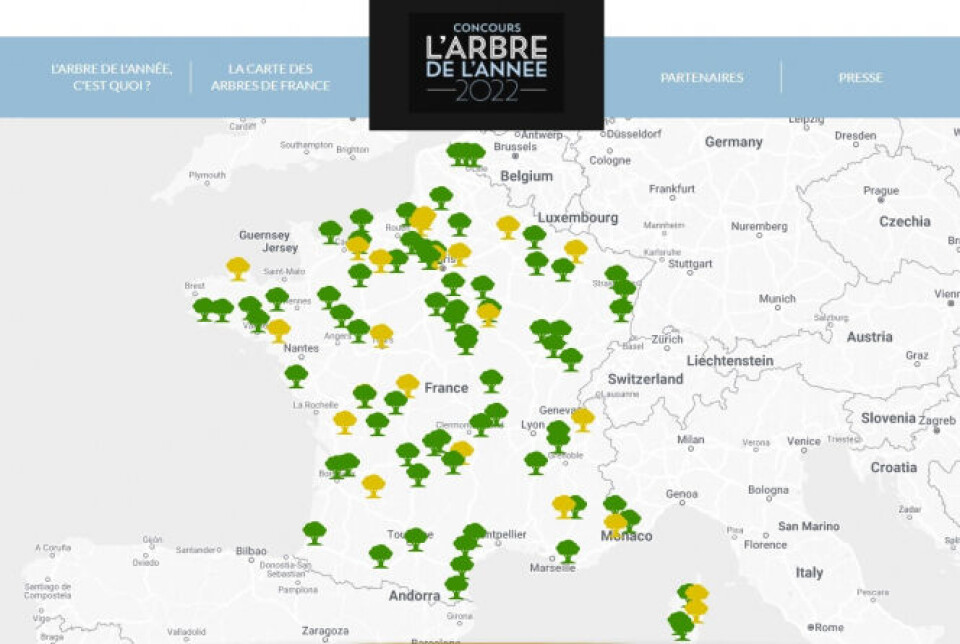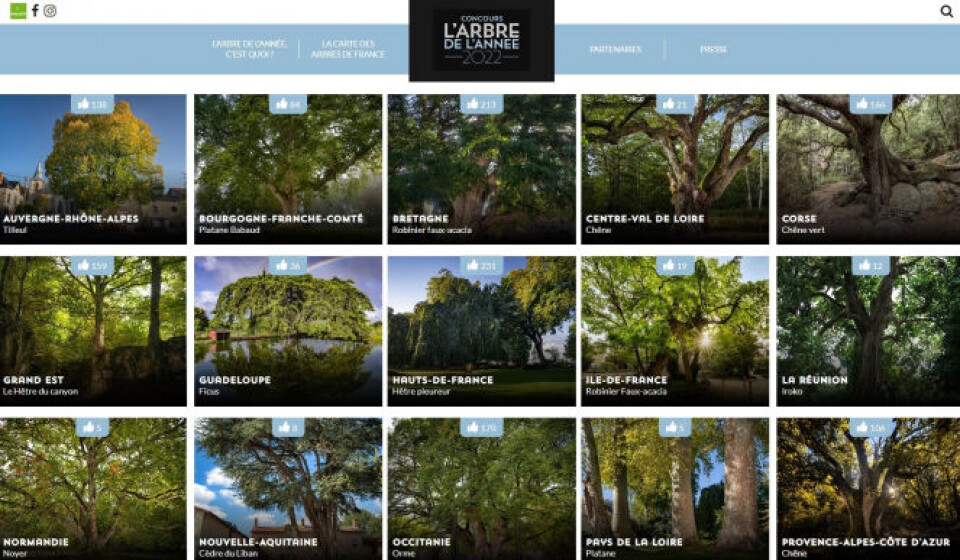-
Know your cheeses and their seasons: which to eat in France in February
Cow’s milk cheeses dominate as winter comes to an end
-
Films and series to watch in February to improve your French
Every month we outline good film and TV series to improve your language
-
Duck Cold! Four French phrases to use when it is freezing outside
France's current cold spell is set to continue for the next few days - we remind you of French expressions to use to describe the drop in temperature
Vote for your favourite tree in France: Contest now open
Online votes are now being taken for the shortlist of 14 'most beautiful’ trees, with each representing a region of France and celebrated for its heritage and environmental importance
People in France still have time to vote for their ‘most beautiful tree’ of 2022, with oaks, magnolia, and ginkgo among the impressive varieties on the 14-tree shortlist.
Members of the public can vote online for their chosen tree until January 4, 2023, before the winner is announced on January 16.
The competition was first launched in 2011 by the magazine Terre Sauvage, and the national forest office l’Office national des forêts (ONF), and the first edition received 150 nominees.
The shortlist for this year includes 14 trees that have been vetted by a jury, with each tree representing a French region.

The l’Arbre de l’Année website has a map showing where the nominated trees are located. Photo credit: Arbredelannee.com
The winning tree (or more specifically, their managers) will be awarded a financial prize in honour of its cultural, historical, environmental, social, and heritage importance.
It will also go on to represent France in the European Tree of the Year competition, which is organised each year by a Czech environmental association.
The full French shortlist can be seen on the internet site Concours l’arbre de l’année 2022. They include oaks, magnolia grandiflora, and ginkgos biloba, which are famous for their highly-coloured foliage.

The website shows the full list of nominees. Photo credit: Arbredelannee.com
Last year’s winner was a rare and protected species, a 330-year-old chestnut tree that was planted during the reign of Louis XIV, and located in La Celle-Saint-Cloud, Yvelines.
The year before that, the winner was a majestic 400-year-old black poplar, 37m high and 12m in trunk circumference, in the village of Boult-sur-Suippe, Marne.
The French tree will need to be exceptional to win the European title.
Last year, the podium was taken by three oaks. The first was an Oak Dunin from the primaeval forests of Poland; the second was a Spanish oak from the Banquete de Conxo forest, and the last was a protected cork oak from Portugal.
Related articles
Shade and chic: France’s history of planting trees in a row
Can I make my neighbour prune trees that overhang my garden in France?
French town gives residents trees to add greenery to the local area
























